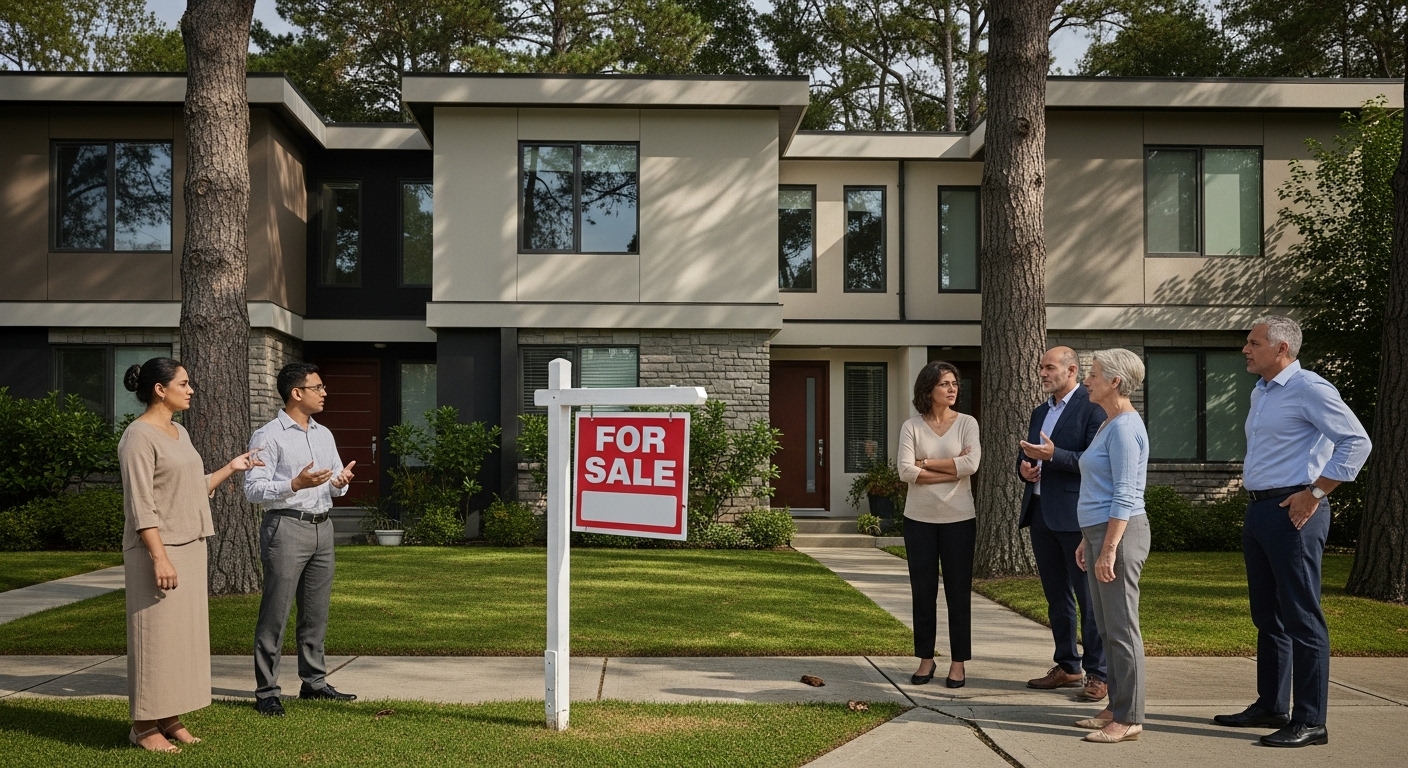Real Estate Disputes

Real estate disputes in Dubai are a significant aspect of its dynamic property market. As a global hub for investment, the UAE and specifically Dubai, have a robust legal framework to govern property transactions and resolve conflicts. This framework is a unique blend of Islamic Sharia principles and modern codified laws.
Here’s an explanation of key aspects related to real estate disputes in Dubai:
I. Common Types of Real Estate Disputes:
Real estate disputes can arise between various parties, including:
- Developer vs. Buyer (Off-Plan Properties): This is a very common area of dispute, often involving:
- Delayed Handovers: When developers fail to deliver properties on the promised date.
- Quality Defects: If the delivered property does not meet the agreed-upon quality standards or specifications.
- Breach of Sale and Purchase Agreements (SPA): Any failure by either party to fulfill contractual terms.
- Project Cancellation: If a project is cancelled, disputes arise over refunds and compensation.
- Landlord vs. Tenant (Rental Disputes): These are extremely frequent and often relate to:
- Rent Increases: Disagreements over the legality or fairness of rent hikes, often exceeding RERA (Real Estate Regulatory Agency) rental index guidelines.
- Eviction: Landlords attempting to evict tenants without proper legal grounds or notice periods.
- Maintenance Issues: Disputes over who is responsible for major or minor repairs.
- Security Deposit Returns: Disagreements over deductions made from security deposits at the end of a lease.
- Lease Termination: Early termination penalties or disputes over notice periods for non-renewal.
- Co-owners/Strata Disputes: In jointly owned properties (apartment buildings, communities):
- Service Charges: Disagreements over the amount or use of service charges.
- Mismanagement: Issues with the owners’ association or property management.
- Voting Rights: Conflicts among co-owners.
- Investor vs. Broker:
- Misrepresentation: Brokers providing false or misleading information.
- Commission Disputes: Disagreements over broker fees.
- Unauthorized Deals: Brokers acting without proper authorization.
- Construction Disputes:
- Construction Defects: Issues related to poor workmanship, materials not meeting standards.
- Contractual Breaches: Disagreements between contractors, subcontractors, and property owners.
- Payment Disputes: Delays or non-payment for construction work.
- Property Ownership Disputes:
- Title Deed Conflicts: Issues regarding the legitimacy of property titles.
- Inheritance Issues: Disputes among heirs over inherited properties.
- Boundary Disputes: Neighbors disagreeing on property lines or encroachments.
II. Key Regulatory Bodies and Laws:
The Dubai Land Department (DLD) and its regulatory arm, the Real Estate Regulatory Agency (RERA), are central to managing real estate and resolving disputes.
- Dubai Land Department (DLD): The main government entity responsible for all aspects of real estate transactions, property registration, and dispute resolution in Dubai. It aims to ensure transparency and protect rights.
- Real Estate Regulatory Agency (RERA): A branch of the DLD, RERA is responsible for regulating all real estate operations. It sets laws, regulates professionals, and aims to protect investors and consumers. RERA also issues the RERA Rental Index, which acts as a guideline for rental increases.
- Rental Dispute Settlement Centre (RDSC): A specialized judicial body under the DLD, the RDSC is specifically mandated to resolve rental disputes between landlords and tenants. It acts as a semi-judicial body, and its decisions are legally binding.
- Ejari System: Mandatory in Dubai, Ejari is an online system for registering tenancy contracts. This registration makes rental agreements legally binding and provides crucial documentation for dispute resolution.
- Oqood System: This is Dubai’s real estate registration system specifically for off-plan properties (properties still under construction). It records and manages contracts between developers and buyers, providing legal protection and transparency before the final title deed is issued. It helps in resolving disputes between developers and off-plan buyers by providing validated records.
- Key Laws include:
- Law No. 26 of 2007 (amended by Law No. 33 of 2008): Governs landlord-tenant relationships.
- Law No. 13 of 2008: Regulates interim real estate registration (often related to Oqood).
- Law No. 6 of 2019: Regulates jointly owned property (Strata Law).
III. Dispute Resolution Mechanisms:
Dubai offers several avenues for resolving real estate disputes, moving from informal to more formal legal processes:
- Direct Communication & Negotiation: The first step should always be for parties to communicate openly and try to reach an amicable agreement. Documenting all communication in writing (emails, letters) is crucial for evidence.
- Mediation:
- Often a mandatory step before litigation, especially for rental disputes at the RDSC.
- A neutral third party (mediator) facilitates communication to help parties reach a mutually acceptable agreement.
- It’s generally faster, less costly, and less adversarial than litigation, helping preserve relationships.
- Filing a Complaint with the Relevant Authority:
- Rental Disputes: File a case with the Rental Dispute Settlement Centre (RDSC). The process involves submitting required documents (Ejari contract, ID, proof of payment, correspondence) and paying a fee (typically 3.5% of the annual rent or disputed amount). The RDSC aims for quick resolution, often within 15-30 days.
- Off-Plan/Developer Disputes: Complaints related to off-plan properties or developer issues might be filed with RERA or the DLD directly.
- Arbitration:
- An alternative to court, where parties agree to have their dispute resolved by an impartial arbitrator (or panel) whose decision is often binding.
- Gaining popularity for high-value and complex sales contracts, especially for foreign investors, due to its confidentiality, flexibility, and enforceability under UAE Arbitration Law (Federal Law No. 6 of 2018). Venues like DIAC (Dubai International Arbitration Centre) are common.
- Litigation (Civil Courts):
- If other methods fail, parties can initiate legal proceedings in the Dubai Civil Courts (Court of First Instance).
- This is the traditional court process, which can be more time-consuming and costly.
- Decisions can be appealed to the Court of Appeal and then to the Court of Cassation (the highest court).
- Required documents include the rental contract, legal evidence, and supporting documents.
IV. Tips for Preventing Disputes:
Prevention is always better than cure in real estate:
- Clear, Detailed Written Contracts: Ensure all terms, rights, and obligations are explicitly stated in the tenancy or sale agreements. Use RERA-approved standardized contracts (like Ejari for rentals).
- Due Diligence: Thoroughly research the property, developer, and agent. Verify ownership titles with the DLD.
- Register All Agreements: Mandatory registration with Ejari (for rentals) and Oqood (for off-plan) ensures legal validity and protection.
- Maintain Written Communication: Keep records of all emails, notices, and correspondence.
- Seek Legal Advice: Consult an experienced real estate lawyer in Dubai before entering into any significant transaction, and at the first sign of a potential dispute.


